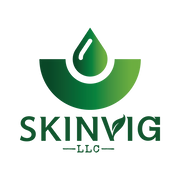


The Dragontree Apothecary
Dry Brushing Skin Brush
This Dry Brushing Skin Brush is a natural boar bristle body brush used to exfoliate the skin, increase blood flow and promote healthy skin.
This full-body scrub is performed with a natural boar-bristle brush, to gently (or vigorously) exfoliate dead skin and invigorate circulation. Dry skin brushing is also said to promote detoxification, strengthen the skin, release ingrown hairs, and promote the breakdown of cellulite.
Dry Skin brushing may be followed by the application of our own different veils of moisture. From House Butter, Souffle, Nectar, or Tru Oil, you will love the after-effects of this lovely self-care act.
Here's to better physical, emotional, and mental health. A self-care essential tool.
Benefits of dry brushing
Dry brushing has gained traction for a reason. The list of benefits includes:
Detoxifying the skin
The mechanical action of dry brushing is excellent for exfoliating rough, dry skin, she says. “Dry brushing unclogs pores in the exfoliation process. It also helps detoxify your skin by increasing blood circulation and promoting lymph flow/drainage,” says Dr. Khetarpal. Also, by unclogging pores, it’s easier for the body to sweat and eliminate toxins in your system.
Stimulating the nervous system
Dry brushing can make you feel good since it has the additional benefit of stimulating your nervous system. It can also leave you feeling invigorated like a massage often does.
Giving your skin a more radiant glow
Removing dead skin cells can help make your skin smoother and softer. It can also give your skin a brighter appearance temporarily.
Gentler on your skin than scrubbing in the shower
Hot water inflames your skin and even strips away oils, fats, and proteins that keep your skin healthy. This can cause redness and itching. Brushing your skin while it is dry allows you to exfoliate and increase blood circulation without robbing it of moisture the way the hot water in your shower can.
What brush should I use to dry brush?
To get the benefits of dry brushing you’ll want to use a natural stiff-bristled bath or shower brush, preferably one with a long handle. Some bristles are stiffer than others, and it depends on your skin’s sensitivity and preference. The long handle is helpful for tough-to-reach areas like your back.
Can I dry brush with sensitive skin or other skin conditions?
It’s possible to use a dry brush if you have sensitive skin. For dry brushing to be fully effective, the bristles must generally be pretty firm. But if your skin is too sensitive, you can use a plain, dry washcloth. If you notice redness, swelling, or inflammation while brushing, stop right away.
Also, never dry brush over moles, warts, or raised bumps among many other things. See your dermatologist if you have questions.
“Do not use a dry brush or cloth on skin that’s broken. This includes cuts, scrapes, lesions, sores, or burned skin, including sunburns,” she adds. “Don’t ever brush over areas of infection, redness or general irritation, inflammation, cellulitis, or skin cancer. Stop dry brushing if skin becomes irritated or inflamed.”
Dr. Khetarpal also points out to avoid using a dry brush on your face since the skin is more sensitive than on the rest of your body. “If you want to exfoliate your face, use more gentle products and methods that are designed specifically for it,” she says.
When should I dry brush?
The best time to dry brush is just before a shower. Then you can wash off any dead skin cells and flaky skin. Be sure to apply lotion afterward to put moisture back into your skin.
Legal Disclaimer
Statements made, or products sold through this website, have not been evaluated by the Food and Drug Administration. They are not intended to diagnose, treat, cure, or prevent any disease. Information provided on this site is for informational purposes only and is not intended as a substitute for advice from your physician or doctor or any information contained on or in any product label or packaging. Always consult with a physician or licensed doctor before starting any diet, exercise or supplementation program, before taking any medication, or if you have or suspect you might have a problem.
Statements regarding dietary supplements have not been evaluated by the FDA and are not intended to diagnose, treat, cure, or prevent any disease or health condition.
I read up on the benefits of dry brushing and found to be incredibly soothing especially following up with a bath with Skinvig soaking salts!
